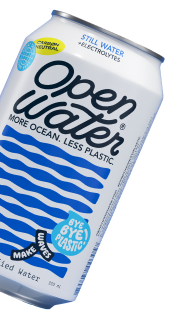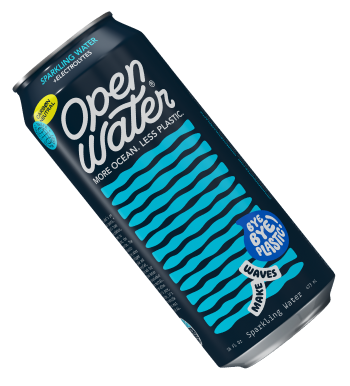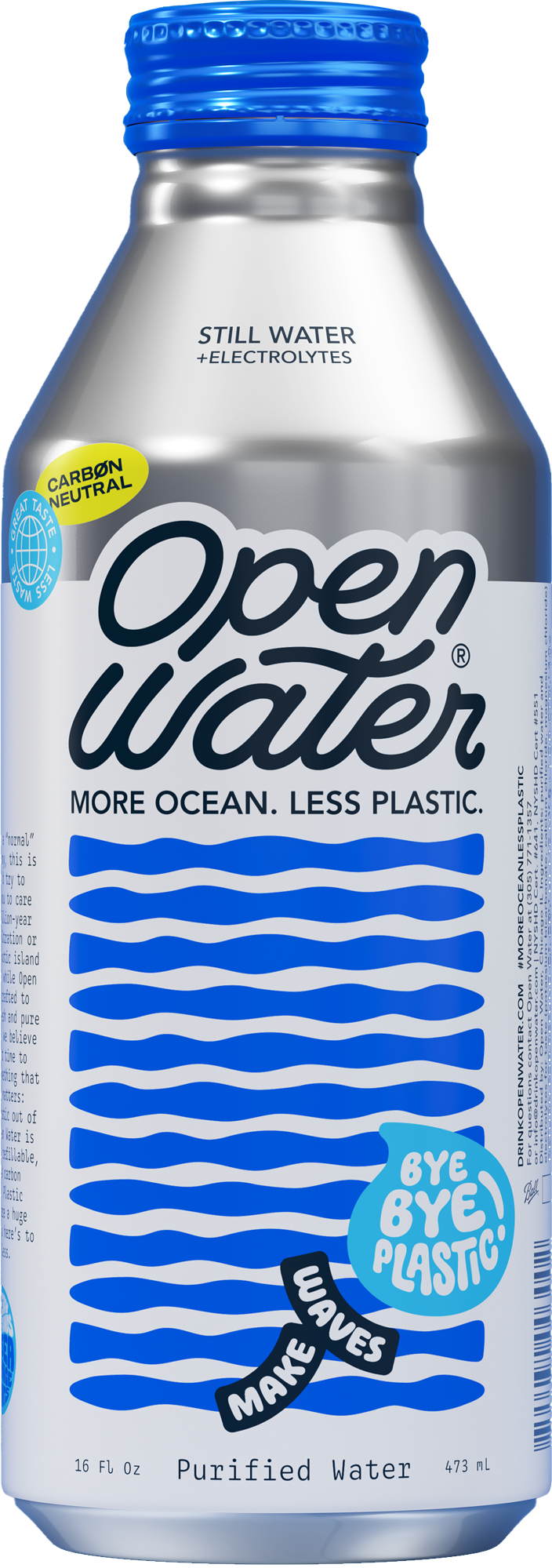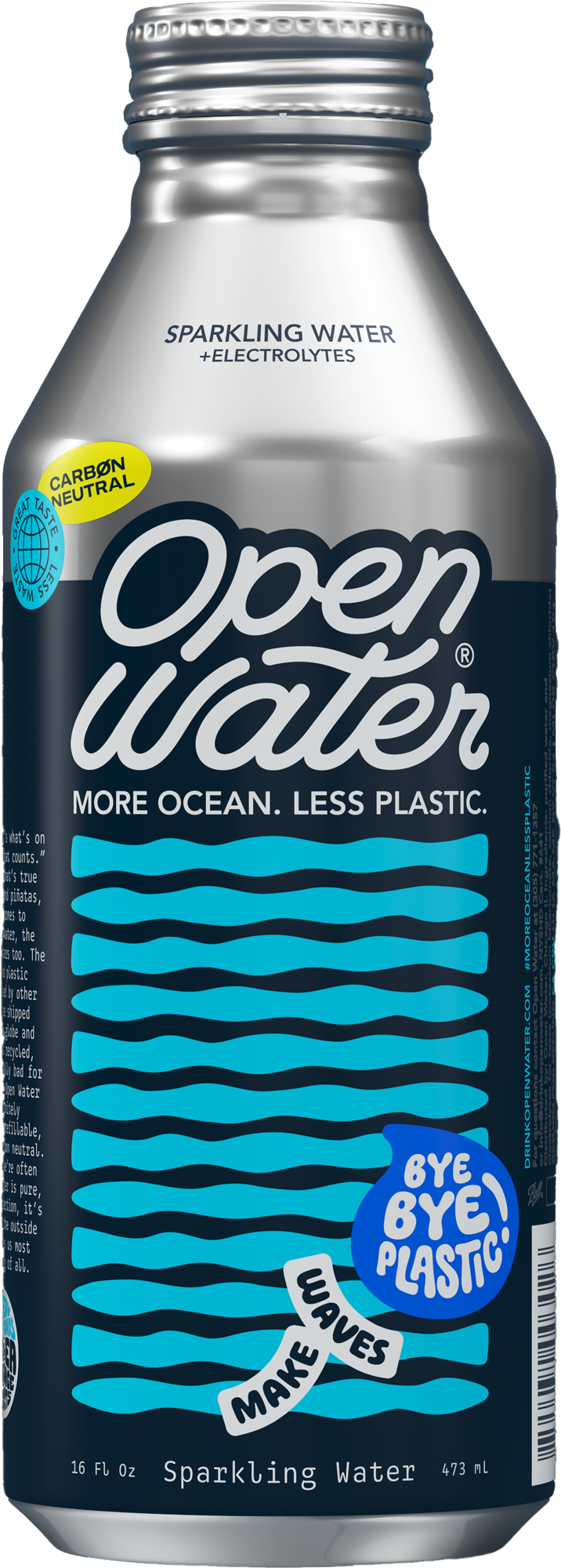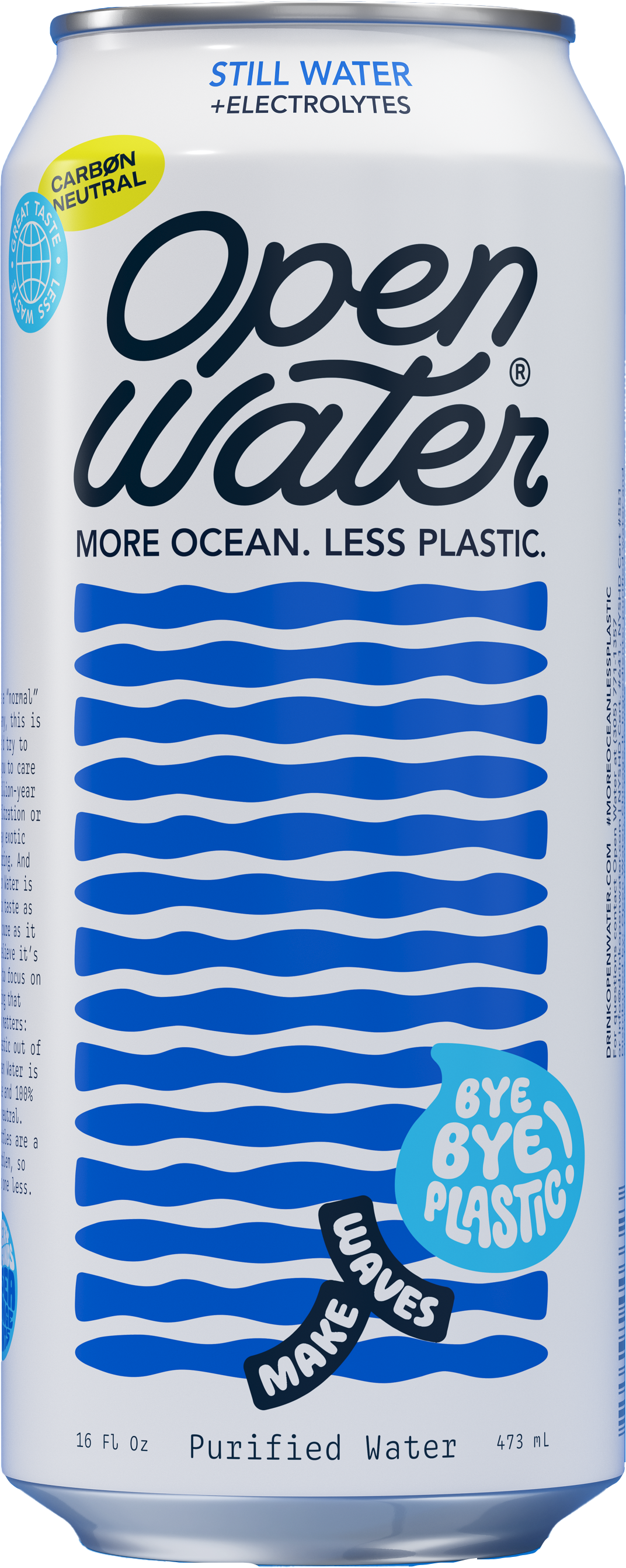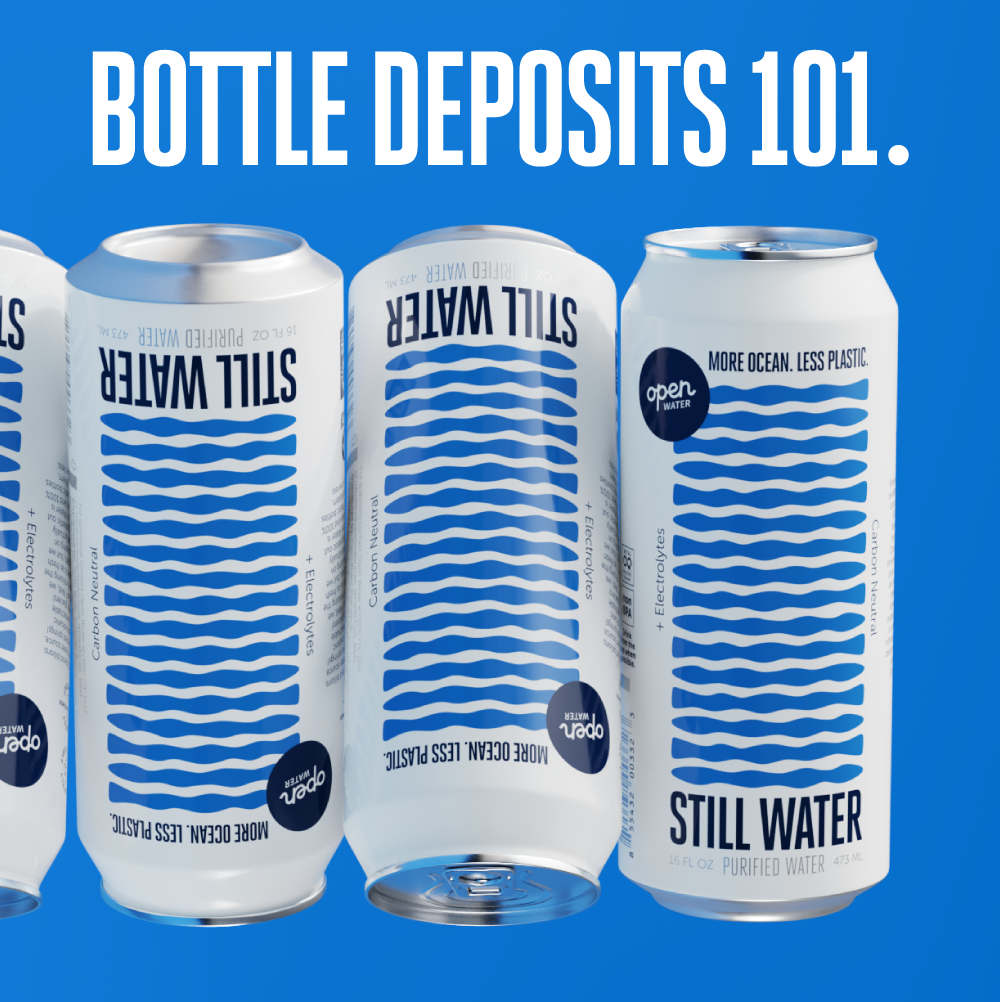So what's the deal with the 5-10¢ deposits when I buy Open Water in certain states?
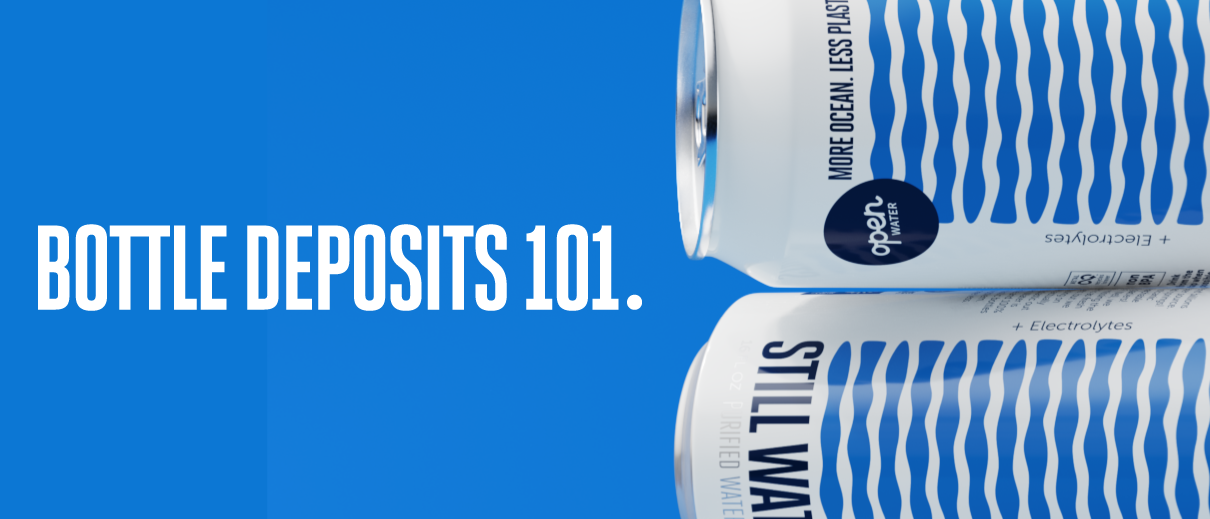
Ten states in the U.S. have bottle bills – also known as container deposit laws – that require a minimum refundable deposit on beverage containers. These vary a little bit state by state, but the general idea is the same: Put a value on empty beverage containers to encourage their return in order to reduce litter and ensure the material is recycled.
Simple right? And guess what? It works. Very well. The ten states that have container deposit laws have recycling rates that are more than twice as high as other states. States with bottle bills have a beverage container recycling rate of around 60%, while non-deposit states only reach about 24%. Bottle bills have shown to reduce beverage litter by 30-84%, depending on the state’s deposit value.
And don’t forget, it’s a deposit (not a tax) – meaning that you can get this money back! And you should because it’s the best way to ensure that your bottle or can has a bright future as a beverage container again. Beverage containers recycled through deposit redemption centers are less likely to be broken or contaminated than when recycled at the curbside.
So what happens to my deposit if I don’t get it back and I recycle my bottle in my curbside bin instead? First off, don’t stress because at the end of the day it is way better that you are recycling your Open Water than not. Unredeemed bottle deposits are technically public resources so they go back into funding recycling programs and litter collection.
Sources:
1https://www.container-recycling.org/index.php/issues/bottle-bills
2https://circular-economy.tomra.com/resources/drs
